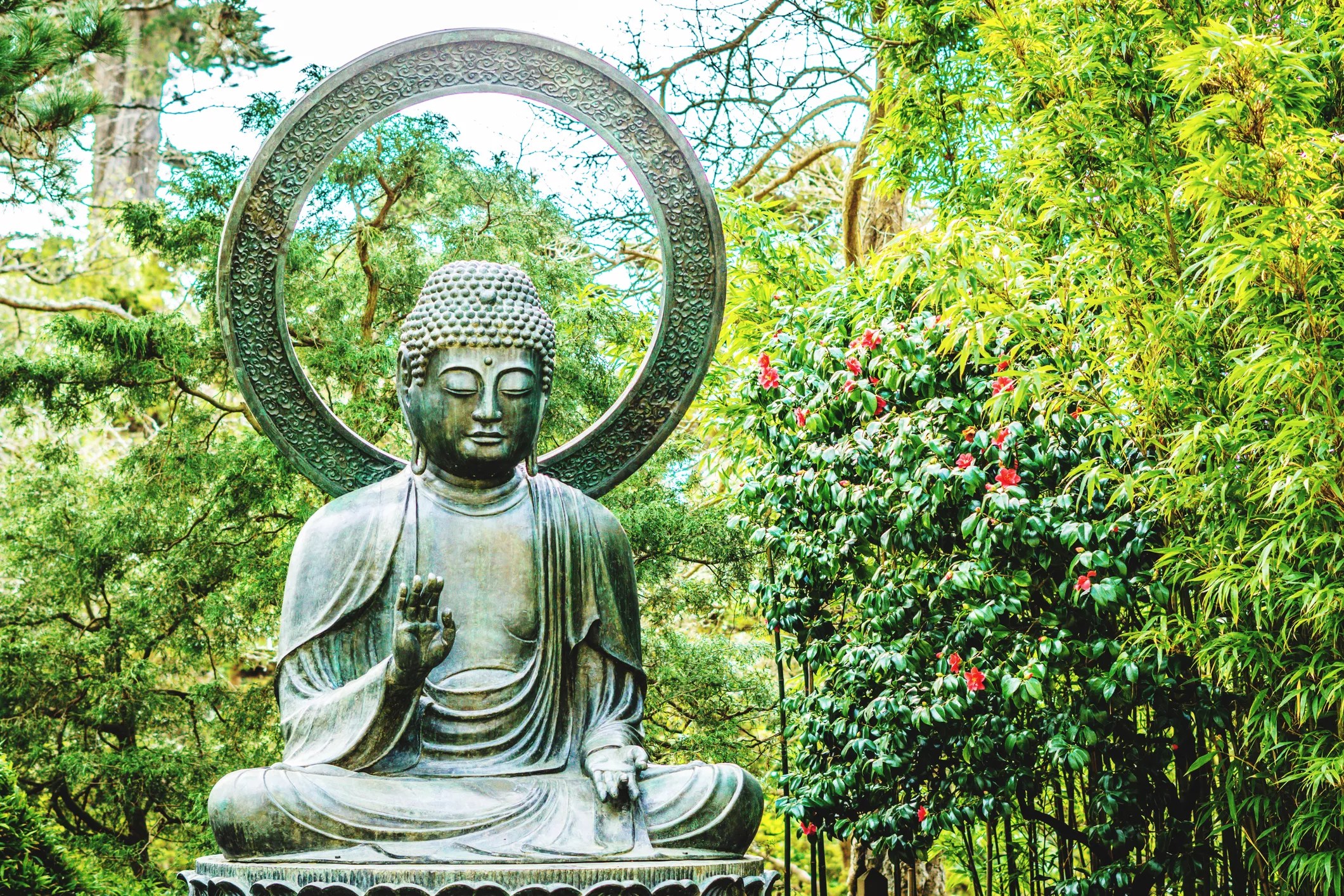
Photo by Ronald Altizer/EyeEm/Getty

Audio By Carbonatix
The space outside David Saginor’s Parkland home is no ordinary yard.
The organic garden is lined with more than 60 species of meticulously tended plants, including Suriname cherry hedges, bougainvillea, and a Simpson’s stopper tree with edible berries. An English teacher and devout Buddhist, Saginor says he spends many of his days in the sunkissed haven, where he tries to provide a habitat for butterflies and other insects.
At the heart of the garden is a sacred Bodhi tree, AKA Ficus religiosa, the same type of tree under which Siddhartha Gautama, the founder of Buddhism, is said to have attained enlightenment. Saginor often meditates beneath the tree in hopes of achieving some kind of inner peace amid the hectic comings and goings of Broward life.
One day back in September 2021, the sanctity of the sacred garden was shattered when Saginor “noticed an unfamiliar blue-green residue collecting on his hands and feet,” according to a lawsuit he recently filed in Broward County court.
He found a notice on his front door from lawn-care company TruGreen, stating, to his shock and dismay, that it had doused his garden with Talstar Pro, a long-lasting pesticide containing the active ingredient bifenthrin, according to the complaint. The company apparently had meant to apply the chemical to a neighbor’s house a few doors down with a similar address in the Cypress Head community.
Saginor claims he “was devastated.”
The chemical application went against his “strict philosophical decision” to use no chemical pesticides or fertilizers on his property so as to protect the fragile ecosystem of his garden, he says.
“The use of chemicals on plaintiff’s Bodhi tree is a sacrilegious act of desecration that cannot be undone,” the lawsuit states.
In the days that followed, Saginor talked with TruGreen about what happened and tried to work out a resolution. As a practitioner of Theravada Buddhism, he strove to forgive, to let the mistake slide, he says.
“While Plaintiff was shocked that the anti-chemical pollutant philosophy of the property was violated, he agreed to allow TruGreen to attempt to remedy the error by treating the property with liquid activated charcoal (intended to deactivate the pesticide and other chemicals) and later seeding the property with an OMRI-approved humic-based bio-stimulant (intended to restore soil health),” the complaint states.
Serenity was restored in the Buddhist garden for a while, until TruGreen allegedly repeated the mistake.
Last June, Saginor says, he was flabbergasted to find TruGreen had again spritzed his sanctuary with chemicals, this time an unsavory 33-gallon cocktail with Manor-brand metfsulfuron methyl (a persistent herbicide), SpecticleFlo indaziflam (a weedkiller), and synthetic fertilizer.
“To make matters worse, the wind was blowing at six mph while the chemicals were being applied, which means the chemicals likely spread over every portion of the property,” the complaint alleges. “Plaintiff was distraught.”
Eleven days later, TruGreen “again assaulted” Saginor’s garden, spraying an even larger volume of contaminants: 156 gallons of liquid containing a fungicide, a potent nicotinoid pesticide, and Wisdom-TC-brand bifenthrin, Saginor says. The chemicals were spread across his trees, shrubs, and hedges, some of which produce fruit that Saginor and his family eat on a regular basis, according to the complaint.
In each instance, TruGreen intended to apply the chemicals to Saginor’s neighbor’s yard but bungled the addresses, he says.
The contamination of the garden has made it hard for Saginor and his father, who suffers from Parkinson’s disease, to enjoy their walks in the garden, Saginor says. The activity, he says, “has been irreversibly tainted by TruGreen’s wrongful conduct.”
Saginor claims he has sought counseling over the ordeal.
“People might think, ‘Oh well he got a free treatment.’ But this was just devastating to him,” Saginor’s attorney Eric Hayden says.
“After the first time, he reached out to them himself. He was understanding mistakes happen,” the attorney recounts. “But then they did it again and again.”
TruGreen said in a statement provided to New Times that it “is committed to ensuring all associates uphold our standards for service excellence.”
“We are aware of the concerns and have been in contact with Mr. Saginor. However, as a matter of company policy, during an open investigation or pending litigation we are unable to release any other information or comment further,” the company said.
TruGreen is one of the largest lawn-care outfits in the country, with more than 2.3 million residential and commercial customers across the United States. It has more than 300 U.S. branches, according to its website.
The company does extensive business in South Florida, where pristine lawns are aplenty and many residents are determined to extinguish every last ant and unsightly weed. As younger households increasingly turn to contractors for yard services, the lawn-care market has been steadily expanding in recent years.
Saginor’s 3,700-square-foot house sits on a three-quarter-acre lot in Parkland in a community with tightly manicured landscaping. He is active in the all-natural gardening community online and posts about his organic lifestyle.
“This is probably the worst house TruGreen could have done this to,” his attorney tells New Times.